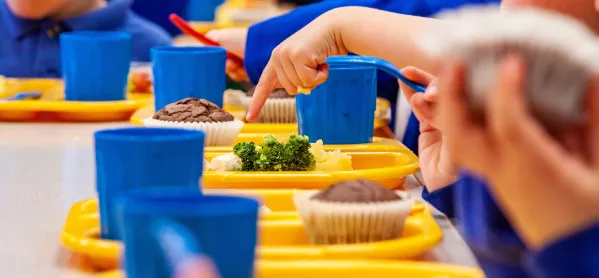Are free meals for all good use of funding, ask MSPs

Is the rollout of universal free school meals in primary the best use of government funding “at times of financial constraint”?
MSPs are calling on the Scottish government to evaluate the impact of universal free school meals on Primary 1-5 pupils before it completes the rollout to children in the final two years of primary.
The Scottish Parliament’s Education, Children and Young People Committee “pre-budget scrutiny” for 2024-25 - sent to education secretary Jenny Gilruth today - is “seeking reassurance that universal free school meals is the most effective way to support the families that the policy is intended to help”.
The committee is concerned that the government’s promised evaluation of the impact of the policy “will not take place until after the policy has been rolled out to all P6-7 pupils”, and calls on the government “to undertake an earlier evaluation, examining the impact of the rollout of universal free school meals in P1-5”.
In its findings the committee also:
- Questions the government’s “strict focus” on teacher numbers. The Scottish government has committed to increasing teacher numbers by 3,500 - which the committee says “is quite rigid” and “seems to run counter” to the commitment to give councils more control over their budgets.
- Asks the government to set out how it will realise its commitment to reduce teachers’ weekly class-contact time by 90 minutes.
- Calls for “quality data, which is recorded consistently” outlining spending on pupils with additional support needs. The committee says current data suggests “15 councils…have recorded a £0 spend on [additional support needs]”. It says it is “confident” these councils are supporting pupils with ASN, but “inconsistencies” in recording make this spending “difficult to track”.
- Background: Free primary school meals for all may not happen before election
- News: Abandoning free meals pledge would be “profoundly damaging”
- Data: Why are only 68 per cent of Scottish pupils taking free school meals?
- Long read: School meals are transformed - but the cuts are hard to swallow
Free meals have been gradually rolled out in primary school over a number of years in Scotland, with P5 the last year group to be added to the scheme, in January 2022.
P6-7s were due to follow in August 2022, but that was delayed and earlier this year it seemed first minister Humza Yousaf was minded to roll back on the commitment.
However, following complaints from children’s charities, as well as teaching unions, it was confirmed that the government remained committed to the policy.
Free school meals expansion
Now the government’s position is that the expansion will be completed in 2026, although it is unclear whether this would be before or after the Scottish Parliament elections in May that year.
However, in its communication to Ms Gilruth, the Education, Children and Young People Committee said “concerns” had been expressed to it about the impact of the policy.
In September Carrie Lindsay, a former director of education and children’s services in Fife, gave evidence to the committee.
Speaking as a representative of education directors’ body ADES, she said that the free school meals policy was focused on “inputs, not outcomes”.
She added: “Nobody would ever say that it is not a good thing to have food available universally for our children and young people.
“Rather, it is about cost and balancing that against other policy areas in which we may be able to invest.”
Register with Tes and you can read two free articles every month plus you'll have access to our range of award-winning newsletters.
Keep reading with our special offer!
You’ve reached your limit of free articles this month.
- Unlimited access to all Tes magazine content
- Save your favourite articles and gift them to your colleagues
- Exclusive subscriber-only stories
- Over 200,000 archived articles
- Unlimited access to all Tes magazine content
- Save your favourite articles and gift them to your colleagues
- Exclusive subscriber-only stories
- Over 200,000 archived articles



